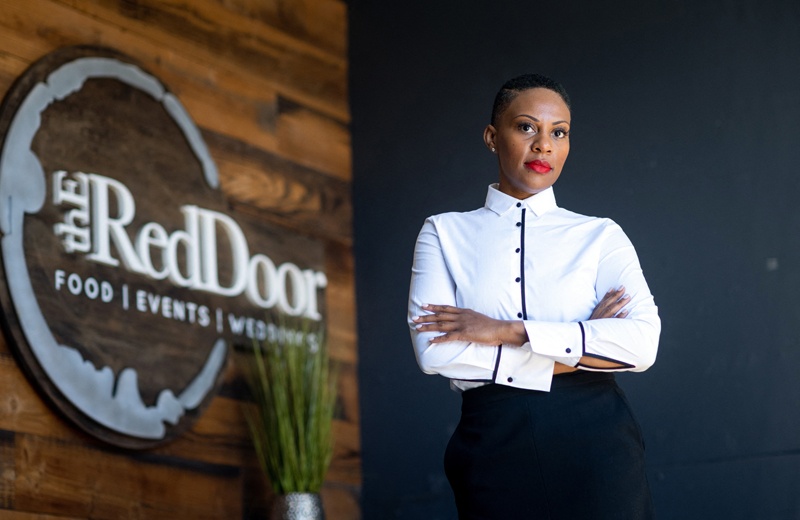WASHINGTON: For the past 11 months, Reign Free has done everything she can think of to keep her catering company open after the pandemic hit-a fight shared by many Black-owned businesses across the United States. As her business dried up, Free has taken out loans from the US government and other lenders and searched for new opportunities, but she wonders how much longer Red Door Catering in Oakland, California can survive the slump.
"We're getting crumbs and it's not enough. We're still having hope, and still trying to stay afloat, but really we're getting deeper and deeper into the hole," she said. Racial minorities have borne the brunt of the COVID-19 pandemic in the United States, with higher rates of death, unemployment and business failure, and less success obtaining federal government assistance intended to provide relief.
President Joe Biden has argued his proposed $1.9 trillion spending package will both pay for an aggressive vaccine campaign to end the virus that has strangled business, while also addressing the longstanding racial inequities that have worsened during the pandemic. "It is a great effort," Cathy Adams, president and CEO of the Oakland African American Chamber of Commerce, said of Biden's plan. The chamber's members have managed to avoid closure, but only with considerable struggle, and Adams fears for their future. "This right here has hit us so hard," she said.
Pre-existing conditions
The world's largest Covid-19 outbreak has exacted an awful toll on the United States, killing more than 480,000 people and leading to mass layoffs, with 20.4 million people unemployed as of January, according to Labor Department data. But it has been a starkly unequal experience. The unemployment rate was at 5.7 percent for white Americans last month but 9.2 percent for African Americans and 8.6 percent for Hispanics, the Labor Department said.
Government data also shows both groups have higher death rates from the disease than whites, and their businesses are similarly imperiled. An August study from the New York Federal Reserve said Black-owned small businesses failed at a rate two times above the national average. Congress has funded two rounds of the Paycheck Protection Program (PPP), which offers loans and grants to small businesses and was created last March as part of the $2.2 trillion CARES Act.
But in the most populous state of California, Black and Hispanic neighborhoods have received less PPP money than white and Asian neighborhoods, and the program supported fewer jobs per resident, according to a study from the University of California, Los Angeles.
Rodrigo Dominguez-Villegas, a co-author of the study, said minority-owned businesses tended not to have relationships with banks or lacked experience with such massive government programs, meaning by the time they applied for the PPP, the funds were depleted. "All those things combined meant that minority-owned businesses had less access to the loans, and it ended up being a program that has the potential to increase racial inequities that were already there before," he said in an interview.
More than stimulus
Biden's plan would continue the unemployment safety net expanded by the CARES Act and send out stimulus checks of up to $1,400 a person, but he has faced pushback from lawmakers who argue his proposal, particularly the checks, are excessive. But William Spriggs, chief economist of the AFL-CIO trade union federation, said the package is designed to better cater to the needs of Black workers, who lagged the white community in terms of wealth even before the pandemic.
Federal Reserve data from 2019 showed the average Black family has eight time less wealth than the average white family, while the average Hispanic family has five times less wealth-and that was before the pandemic. Providing funds directly is "a key element of racial equity," Spriggs said, noting "the Black duration of unemployment is longer than for any other group other than Asian Americans."
For Free, the additional aid can't come soon enough. COVID-19 vaccines are now being administered nationwide, but Free says her calendar, normally packed full of events to cater, is bare. The loans she has received from the PPP are forgivable, but she worries whether Red Door-and other minority owned businesses-can overcome the debt they have been forced to take on from other lenders. "When it has to paid, what's going to happen is another wave of people, especially minorities, closing every day. I can't sleep knowing I have over $500,000 of debt to service," she said. - AFP











